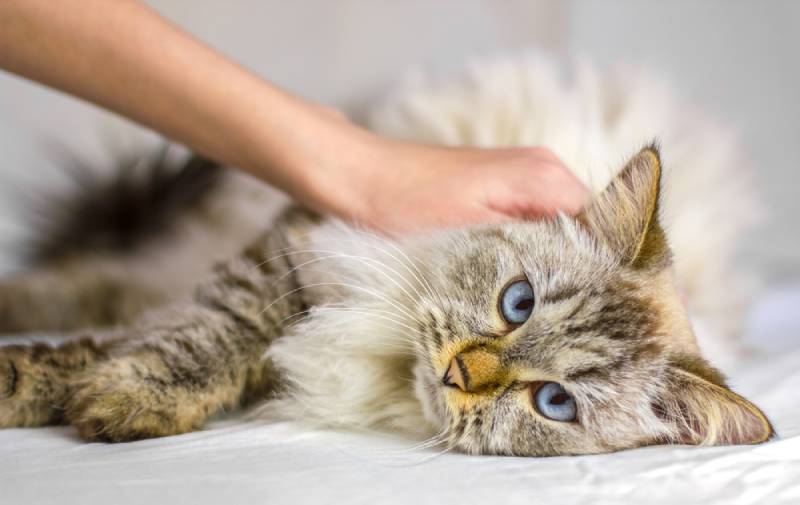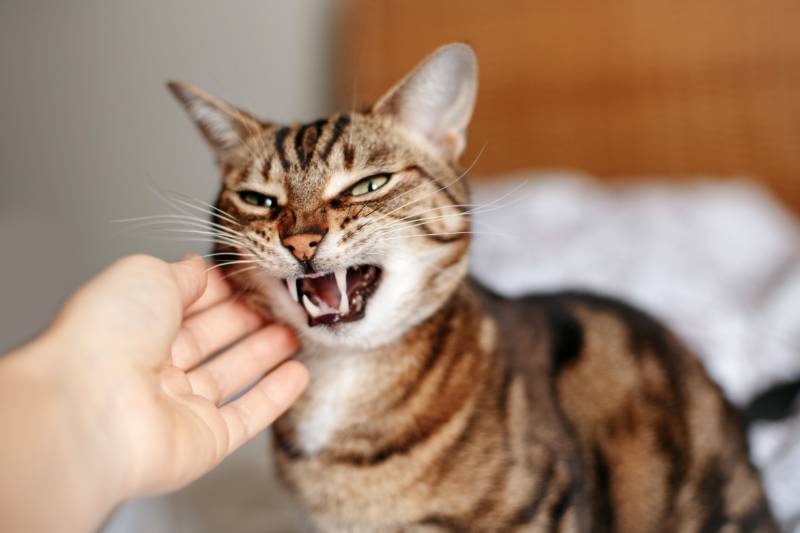The expected behavior changes of an older cat

The expected behavior changes of an older cat
Your cat may be getting old if you’ve had them for a long time and they’ve started acting and doing things differently. Although some live considerably longer, cats usually live 12 to 18 years, and they are deemed senior when they are 11 years old. Cats need more care as they get older and should get biannual exams with a veterinarian. Older cats are more likely to experience behavioral changes in addition to being more susceptible to certain diseases and physiological abnormalities.
It’s possible that you’ve already observed your cat’s decreased energy, inability to hear you, or joint pain. We’ll go over how to take care of an older cat so they may fully enjoy their final years, as well as the behavioral changes you can anticipate from them, below.
Rad and Discover The expected behavior changes of an older cat
The Behavioral Changes to Expect From Older Cats:
-
They Sleep More Than Usual
Although it might seem like you don’t see your elderly cat very often these days, it’s common for their sleeping habits to shift. Their energy levels decline with age, and they typically lose the ability to move around as they previously did. Your cat will grow exhausted more quickly when they move around or participate in family activities, and they will need to sleep in order to recover.
-
They No Longer Respond to You
It’s more likely that your senior cat is unable to hear you, at least not clearly, than that they are ignoring you if they have stopped responding to you or no longer show up when you call them. Many cats get hearing loss or go deaf entirely as they get older. It might be challenging to detect deafness in older cats until it has already occurred since it develops gradually.
Recently, you may have noticed that your cat no longer accompanies you when you open their favorite treat packet or meets you at the door when you get home. If your cat faces away from you and you clap your hands or make a noise, you can determine if they are deaf. They most likely can’t hear the sound if they don’t glance in the direction it’s coming from.

-
They Stop Grooming Themselves Well
Your elderly cat may not groom themselves as often or completely as they used to since they are slowing down, and even a grooming session might be draining. Older cats frequently develop dandruff in their fur, mats and tangles, and an untidy appearance. They could need your assistance more than ever when they get to this point.
Because arthritis makes it painful to walk and stretch to reach the various parts of their body and coat, senior cats may cease brushing themselves appropriately. Due to their limited mobility, older cats are also more likely to develop obesity, which can lead to them neglecting their coats. Dental illness may make matters more difficult.
-
They Become Confused
Unfortunately, aging cats frequently suffer from feline cognitive impairment. It occurs when a cat’s mental faculties deteriorate with age. As your cat has aged, you may have observed a number of symptoms, including changes in activity levels, a lack of interest, forgetting where their litter box is, restlessness, wandering, increased vocalization, memory loss, disorientation, or a change in their sleep schedule.
Providing mental and physical stimulation to your elderly cat will help them maintain their mental acuity. Giving them toys to play with, taking them for walks, letting them go outside, and setting up perches where they can observe their surroundings are all ways to achieve this. Consult a veterinarian as well, since cats with cognitive dysfunction syndrome can benefit from new medications.
-
They’re Not as Playful or Adventurous
It’s possible that your elder cat is sleeping more and playing less. The reason for this could be because they become tired more easily or that their interest in their toys has diminished. Additionally, your cat might not feel the need to go outside much other than to use the restroom or to be near you. They no longer try to catch insects in the grass, climb trees, or bring you “gifts,” as you may have seen.
If your cat’s energy levels have suddenly decreased, it could be due to illness rather than old age. If you’re worried about your cat’s health, you should take them to the veterinarian for an examination because a sudden change in behavior may indicate a problem.
-
They’re More Needy
Older cats frequently exhibit unusual levels of neediness or distance. An unloving cat may suddenly become needy, want to follow you around, and crave cuddles as a result of the emotional shift, or a once-friendly cat may lose interest in you. Personality flips are common as people age, even if it may feel like you have a different cat in your house.
It is important to provide your cat with the things they require, like affection or room.
-
Their Appetite Changes
Older cats frequently start eating less or develop dietary preferences. This may be as a result of their decreased energy expenditure and decreased appetite compared to their more active days. To ensure that your cat gets all the nutrients their body needs, it’s critical to provide them age-appropriate, nutritionally balanced cat food.
Your senior cat may not be eating, though, because they have dental problems, which are prevalent in older cats and make chewing their food painful. Because canned food is kinder to your cat’s teeth and gums, they may perform better on it. Additionally, elderly cats may lose their sense of smell, which can make food bland and uninteresting as they are unable to taste it. A cat may get disinterested in their diet as a result.
A veterinarian should be consulted if a cat is having trouble eating in order to identify the underlying problem.
-
They Become More Aggressive
Older cats may be in pain, which may cause them to become more aggressive towards the people and pets in your home. However, their aggression might also be the result of feline cognitive dysfunction, which can cause them to be confused and disoriented.

How to Care for Older Cats
Attending your older cat’s wellness checkups is one of the best things you can do for them since it will enable your veterinarian to identify issues early and take appropriate action. Regular veterinarian visits reduce the risk of dental disease and other avoidable health problems in cats. Additionally, they may offer you advice on how to take the best care of your cat as they get older.
Brushing your cat daily will help keep their fur free of tangles because they are unable to adequately groom themselves. Additionally, this will disseminate their natural oils and eliminate any stray hairs, improving the appearance of their coat.
Since your cat isn’t climbing, scratching, or engaging in many of the other things they used to perform, it may be necessary to clip their nails more frequently. Additionally, you should provide them the right diet and brush their teeth frequently to avoid dental problems. Your cat will go through a lot of changes as they become older, which may cause them concern. They will be more obstinate, have less stamina and patience, and probably feel some pain or suffering.
Whenever possible, try to make your cat feel less stressed. Choose a litter box that is low enough for them to enter and exit with ease, and purchase them a bed that is easy on their joints. To allow them to dine in peace, provide their food and water in a peaceful area. Give your cat as much or as little attention as they require, and if you’re going on a vacation, hire a pet sitter to watch your cat at home rather than sending them to the kennel. Your cat will be much more relaxed and comfortable as a result.
Finally, did you know the expected behavior changes of an older cat?
Summary
Among the many changes that older cats experience is a change in behavior. More sleep, hearing loss, a decrease in self-grooming, confusion, a loss of interest in things, increased neediness, appetite loss, and aggression are all common in older cats.
Accept their changes and show them that you care for them by taking them to wellness checkups on a regular basis, making them comfortable, lowering their stress levels, providing them with healthy food, and assisting them with self-grooming to avoid dental disease and matted fur.
Read also: Why Cats Bite the Hand They Love
 The First Encyclopedia Your First Knowledge Home
The First Encyclopedia Your First Knowledge Home
